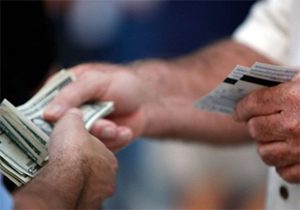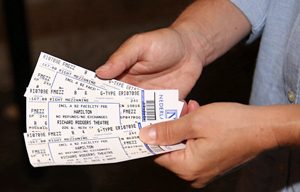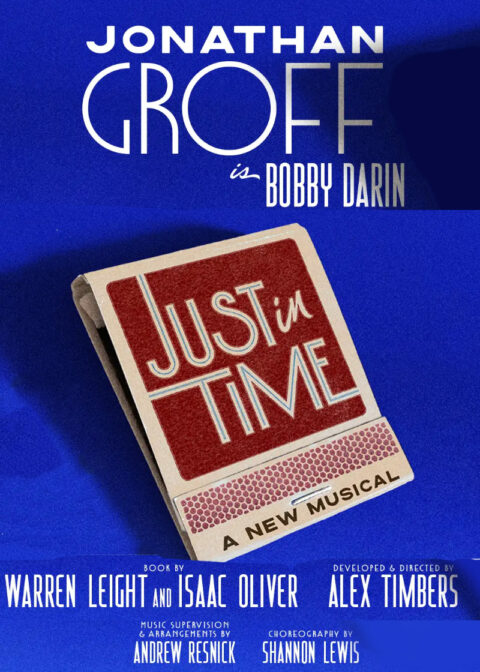Paperless Ticketing Is Illegal In New York, But This Could Change As The Current Laws Are Being Reconsidered With An Impact On Consumers And Ticket Brokers.
New York Is Now The Only State That Prohibits Paperless Ticketing- How This Law Impacts Broadway

By June 21, 2017, New York state lawmakers will need to come to a decision regarding what aspects to repeal or replace of the New York Consolidated Laws, Arts and Cultural Affairs Laws (Article 25), which concern the sale of tickets to events.
Among the many aspects of these laws that are currently under consideration is the issue of paperless ticketing. Currently, New York is the only state that has specifically prohibited the practice of paperless ticketing, whereby patrons purchases tickets merely with the use of their ID and credit card.
Paperless Ticketing To Deter Ticket Re-Sale
Paperless tickets cannot be printed at home or received by mail; they can only be picked up at the event’s will call with the purchaser’s ID and credit card used to make the purchase. Currently, in New York, this practice is only allowed when such paperless tickets are fully transferrable to another name without any additional fees, or when another option besides paperless tickets are also presented to the consumer at the time of purchase.
In other states and abroad, the practice of paperless ticketing is employed principally as a deterrent to the re-sale of tickets, for without the seamless ability to transfer the name on a ticket, its resale is significantly obfuscated. However, these regulations are now up for reconsideration, and if they are overturned, there could be a significant cost to ticket brokers and consumers alike.
Repeal Would Pose Major Imposition On Consumer Choice

In 2007, New York put into effect the unrestricted resale of tickets. In 2010, paperless ticketing became officially illegal, barring the constraints discussed above. At that time, it was considered a significant victory for consumer choice, upholding the belief that consumers have the inherent right to be able to re-sell any item they have purchased.
Just as a consumer should be able to re-sell a car they have purchased, they should be able to re-sell their tickets, in the case they are no longer able to attend the event. However, the opponents of that vote in 2010 included Ticketmaster, Live Nation Entertainment, and the New York Yankees, who were naturally against the law that promoted the secondary ticketing market.
Potential Safeguard Against Counterfeit Tickets
In addition to controlling whether or not a ticket can be resold, they argued that paperless ticketing is a safeguard against counterfeit tickets. At that time, however, they were overruled. More recently, this past month, with less than eight weeks before the expiration of the current laws, a group of representatives from the music industry sent a letter to Governor Cuomo, eager to form a taskforce to ensure that consumer protections would remain.
These representatives included Izzy Zivkovic, whose clients include Kanye West and a founding member of Mumford & Sons, as well as Ian McAndrew, whose clients include Arctic Monkeys. As revealed in New York State Attorney General Eric Schneiderman’s 2016 report on the numerous woes faced by consumers in the purchase of tickets, paperless ticketing is among several issues that could come into play if the current laws are altered.
Legality of Paperless Ticketing Would Severely Impact Brokers’ Business Models
Beyond consumer rights, the potential reinstitution of paperless ticketing would also have a major impact on the business models of ticket brokers. Secondary ticketing sites including StubHub, TicketsNow run by Ticketmaster, Craigslist, and several others, and these sites rely heavily on the ability of consumers to resell their tickets.
The business models of these companies are built on the premise of facilitating the open exchange of tickets, offering convenience and choice to consumers. Unlike primary ticket sellers such as Ticketmaster, the secondary ticket market allows ticketbuyers to decide what to do with the tickets they have purchased.
Big Decisions Ahead For Governor Cuomo
However, major players in the live entertainment industry desire to maintain control over how these tickets are bought and sold, and therefore they will continue to make a push for the legality of paperless ticketing in New York. Moreover, if paperless ticketing suddenly became ubiquitous, it could confuse the older generation who is less tech-savvy, as they might not know how to deal with the new technologies in play. Governor Cuomo therefore has an important decision to make, which could have a ripple effect across the industry.


